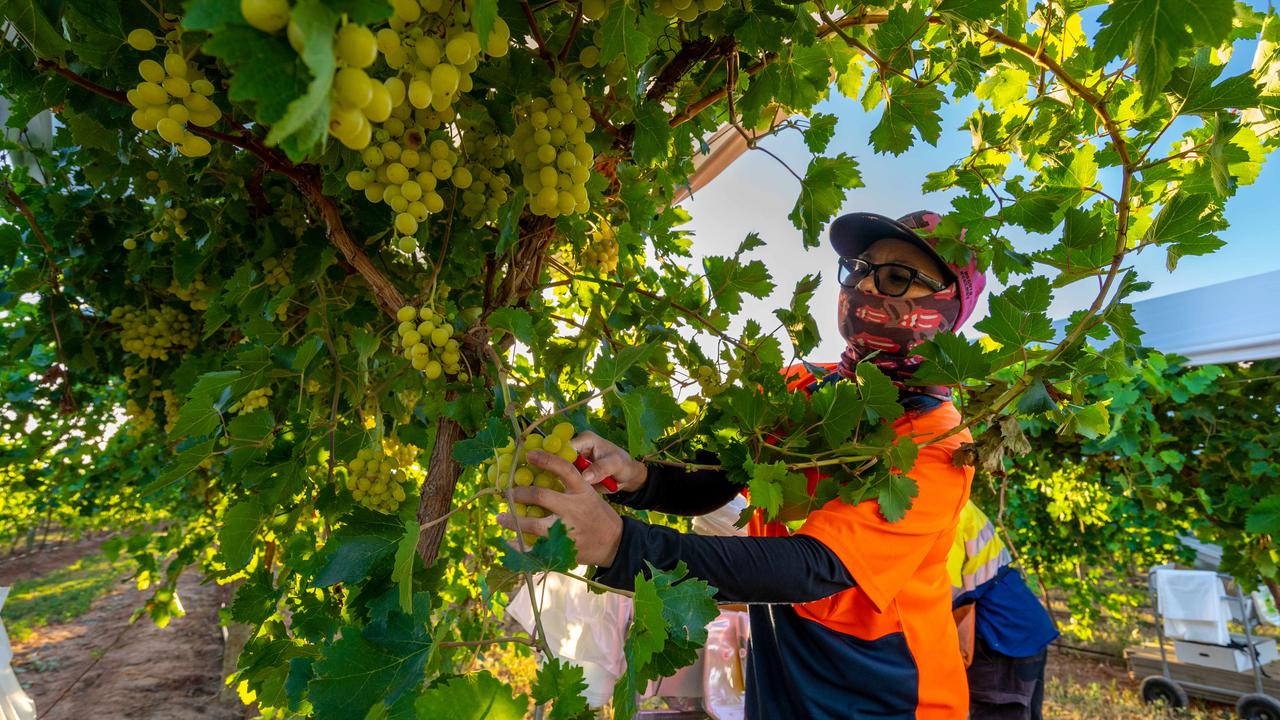FWC application: Unions fight worker’s bid to kill overtime rates
A packhouse manager has contended overtime rates — designed as a safety net for workers — have robbed workers of hours due to farmers’ inability to afford the wages.
Unions are putting up a fight to stop a packhouse manager from stripping horticultural workers of overtime rates, arguing there is no evidence farmers cannot afford to pay the entitlement.
The Australian Workers Union and the United Workers Union have lodged submissions with the Fair Work Commission arguing against an application to amend the Horticulture Award to strike out overtime penalty rates.
The case has been brought to the FWC by Emma Treves, a casual packhouse manager originally from the United Kingdom who has worked for a number of years at various Australian farms.
Ms Treves argues the 2019 addition of overtime rates – designed as a safety net for workers – had the perverse outcome of robbing workers of hours due to farmers’ inability to afford the wages.
Instead of paying the 175 per cent overtime loading that kicks in when a casual employee works more than 308 hours over an eight week period, Ms Treves said workers were stood down to await a new eight-week period, leaving them worse off financially.
The unions argue Ms Treves’ application to strip the award of overtime penalty rates lacked financial evidence and that its removal would be a “dramatic departure” from the FWC’s previous decisions on the matter, including its move to introduce the provision less than four years ago.
“We note that no employer, nor Ms Treves, have provided a skerrick of financial evidence about their inability to pay overtime,” AWU acting national secretary Stephen Crawford said.

Mr Crawford said the current award was already generous for employers.
“Overtime only applies for casual employees if they work over 304 hours in an eight-week period – an extremely generous averaging period by national standards. In addition, casuals in the sector don’t even get weekend penalty rates,” he said.
“We know vested interests in this sector have developed a weird mentality where they think they’re entitled to operate outside the workplace norms that apply to the rest of economy.”
The AWU has argued that the horticultural sector does have the capacity to pay overtime, and relies on two government reports, an agricultural forecast and a labour use survey, as well as the latest annual report from ASX-listed Costa Group, which has operations across Australia, China and Morocco.
The National Farmers’ Federation rebuked the union’s reliance on these documents, given the outlook report and labour use survey consider the agriculture industry as a whole while Costa Group, with annual revenue of $1.2 billion, bared little comparison to smaller growers who were disproportionately affected.
The NFF has proposed a “middle ground” solution of a 26-week averaging period, “given that it would cover the vast majority of peak seasons in the horticulture industry, allow growers to retain flexibility in the period in which work can be performed to avoid undesirable consequences, and would have a less dramatic impact on employees’ earnings by allowing them to work longer hours”.
A full bench of the FWC will be convened to make a finding on the matter.





